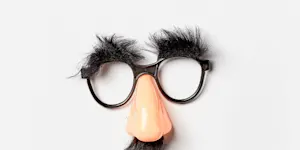What Makes This Word Tick
Ah, "picaroon!" This word has the spirit of adventure and mischief woven into its syllables. It's typically used to describe a rogue or a pirate—someone who engages in petty thievery or piracy. There's a certain sneaky charm to it, evoking images of swashbucklers sailing the high seas with a wink and a smile.
If Picaroon Were a Person…
Imagine a person with a cheeky grin, a twinkle in their eye, and a knack for finding (and occasionally bending) rules to their advantage. This person might be found with a collection of eclectic treasures, each with a story—and perhaps a dubious origin. They’re charming, maybe even a bit roguish, but somehow you just can’t help but like them.
How This Word Has Changed Over Time
Originally from the Spanish "picarón," meaning a sly or cunning person, the word picaroon has retained much of its original nautical flavor over time. While its link with piracy once dominated its usage, today it can refer to anyone who is somewhat of a lovable rascal, perhaps even in non-seafaring contexts.
Old Sayings and Proverbs That Use Picaroon
Though not exactly an old saying, one might whimsically say: "There goes the picaroon, with a heart full of dreams and pockets full of mischief." It's the type of phrase that reminds one of the romanticized golden age of piracy.
Surprising Facts About Picaroon
A picaroon isn't just a human character! In maritime history, a picaroon schooner was a small, agile vessel used for quick maneuvers and, sometimes, illicit activities. These schooners were as sly as their name implies, able to dart in and out of trouble at a moment's notice.
Out and About With This Word
You might use "picaroon" in a playful tone to describe someone who's up to harmless mischief at a family gathering. It's perfect for someone sneaking the last piece of pie or orchestrating a good-humored prank on a friend.
Pop Culture Moments Where Picaroon Was Used
The word is a rare gem in pop culture, but movies and literature about pirates, like "Pirates of the Caribbean," capture the essence of a picaroon. Character portrayals by actors like Johnny Depp become synonymous with the concept, even if the word itself isn't explicitly used.
The Word in Literature
"Picaroon" may pop up in adventure novels or historical fictions centered around piracy. It fits comfortably in stories by authors like Rafael Sabatini, where daring and wit dance hand in hand with danger and deception.
Moments in History with Picaroon
Picture the golden age of piracy—Caribbean ports filled with sailors and scoundrels, where men like Blackbeard and Henry Morgan may have been called picaroons for their infamous escapades. It’s less about precise moments and more about capturing the spirit of rebellious adventure of the times.
This Word Around the World
In Spain, the word "picarón" holds onto its roots, still describing someone crafty or roguish. Across the Atlantic, in the French tongue, you might hear "picaron" used in a similar fashion, though perhaps peppered with an air of charming mischief rather than piracy.
Where Does It Come From?
"Picaroon" sprung from the Spanish "picarón," itself related to "pícaro," meaning rogue or rascal. The word sailed across languages and time, reinforcing the idea that culture—and language—loves a good rascal story.
How People Misuse This Word
Some might confuse "picaroon" with simply being a pirate, overlooking its broader connotations of charm and cheekiness that go beyond just thievery on the high seas.
Words It’s Often Confused With
Pirate: While all picaroons can be pirates, not all pirates capture the playful cheekiness implied by "picaroon."
Rogue: A broader term that lacks the inherent nautical flavor and adventure associated with "picaroon."
Scoundrel: This implies a more serious and often less charming undertone than the playful "picaroon."
Additional Synonyms and Antonyms
In the synonym camp, you might find "buccaneer" and "rascal," while "law-abider" or "straight-arrow" could serve as antonyms. Of course, none capture the same particular mystique as picaroon.
Want to Try It Out in a Sentence?
"At the heart of the bustling port town, the picaroon sat at the tavern with a mug of ale in hand, spinning tales of treasure islands and witty escapades." What fun to imagine, right?
















